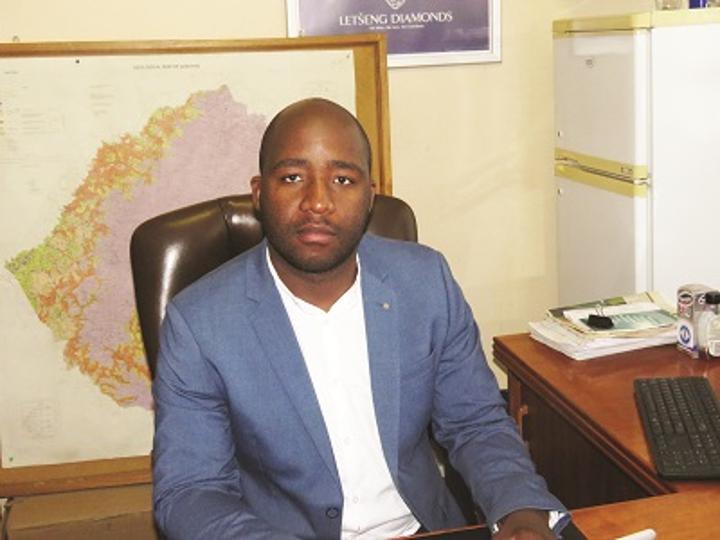Africa-Press – Lesotho. The Natural Resources, Tourism and Land Cluster Committee had accused the mines over the ‘perpetuity’ of evading royalties. This was established at the sitting of the committee in which the Ministry of Mines was
summoned to give an account over the complaints brought before the committee last week in parliament. The mines according to the committee “evade” paying the dividends.
The committee said while intervening between the Reskol Diamond Mine and the Kolo Community around Ha-Petlane where the mine operates. Responding to the
committee questions, the Commissioner of Mines Pheello Tjatja said Lesotho entered into a double taxation agreement, this arrangement he argued is exploited
by the mines. He further decried base erosion which the mines perpetuate. The Public Accounts Committee (PAC) had compiled a report covering the period from 2013 to 2016 in
which it has recommended proper monitoring mechanisms. “Royalties amounting to M27, 472, 971. 48 were not paid in 2009. The Ministry responded that no clear and proper follow
up system on payments is in place,” reads the report. The Commissioner made mention as the Ministry they are in talks with relevant stakeholders to enact
laws which will see the discontinuation of such practice. Taking stock of the community grievances of Ha-Petlane in Kolo, Thabex Limited mine which the
committee had requested the Ministry to cast light on its operations and address the Ha-Petlane’s community concerns concerning the mine, Reskol Diamond
Mine. Tjatja said Thabex Limited was liquidated and Angel Diamonds took over operations and after it’s prospecting, Reskol Diamond Mine was issued a prospecting lease in July 2011
which expires in 2021. Meanwhile, during these transitions, the Directors are reported to be the same to which the acting Chairperson Hon. Kimetso Mathaha charged that when they have to pay required
dividends, the investor ‘claim’ to be servicing the loans they have incurred. This seemingly did not sit well with the Committee, which raised suspicions to
the effect that the shareholders “pay” loans among themselves. According to the Commissioner the mine had stopped operations as it is in ‘care and maintenance’
stage. Tjatja said for the mine to resume operations, there is a need for preparation for electricity, water and to carry out the relocations. The Relocation Action plan, he said is required from them when they mount the
fully-fledged operations. He added that there are technical issues that should be handled by the Ministry before the mine can go into full production activities.
Also, the Commissioner said sometimes the mines “do not have interest in paying the dividends”. He highlighted that as mining lease agreements afford them to pay dividends after servicing the
loans incurred while mounting the mining operations. The Commissioner showed that the Ministry once after issuing the mining lease they engage relevant stakeholders such as the District Administrators, Principal Chiefs, and
Members of Parliament in that constituency amongst others for smooth working relations and conduct detailed consultations on the operations of the mine and
what is expected from the community. He said the Reskol Diamond Mine received a few diamonds which were of low quality and their sales were not “impressive”.
The Commissioner said another operational challenge they encountered was that they took a machine which was later discovered to be crushing diamonds. Also, he said the
mine took samples of three tons of soil to laboratories in South Africa (SA). They were helped to recover a few and had since identified a machine to carry
out such work. On the question of good working relations between the mine and the community, he said the community told them that Civil Society Organizations (CSOs) ‘ignite’ chaos
between communities. He further said, “the Commissioner can only do so much as he is also guided by the decisions from the Department of Environment. ”
On outstanding claims, the Commissioner said it was people who were engaged during the relocation of graves and the mine did not pay those who were working as per the
written agreement on how much to pay. He said the Department of Environment is the key stakeholder which approves Environmental Impact Assessment and settlement plans amongst others.
At one stage, Tjatja said that the mine wanted to relocate the plant and the Ministry disapproved, adding that the Ministry had imposed restrictions that the mine will only do
blasting. “They had relocated about seven houses which were cracked,” he said. The Commissioner also expressed the need for the comprehensive overhaul of the Ministry’s policy
arguing that such a move will empower his office to effectively address the challenges unfolding, which he said some are ambit his jurisdictions. He told
the Committee that with more powers to be able to address the stated grievances and unforeseen challenges, citing hotly contested reimbursements to be clearer
on how they should be carried out. He said they are also reviewing their policies and the processes are underway wherein they will issue a lease accompanied with the agreement between the mine and the community
which the Ministry will enforce and can approach courts for recourse should the mine found to be wanting. The Commissioner said they do not have Corporate Social Responsibility (CSR) enforcing laws, adding
that it is currently happening “voluntarily”. Their wish he said, is that the mine should invest M5 million annually on community based projects or one
percent of their dividends. Tjatja further said they want to mount the mineral cadastre in which the information can easily be accessed and maps can be shown as to which areas are mined and show which
leases have been issued. He decried the low-budget which he argues hampers their working progress, saying his Ministry is allocated M1, 8 million as operating costs on an annual basis, a figure which he argued is little to meet
the Ministry’s needs. “We are in a crisis situation,” he stressed. On the allocation of jobs, he said the policy stipulates that it is open to all Basotho, however
on unskilled work, he said the priority is given to the immediate members of the community in which the mine operates. For his part, the Principal Secretary for the Ministry of Mining Tšokolo Maila said the Ministry
pleaded support from the Committee to have capacity to prospect, a move which he said will bring meaningful contribution into the government coffers. The Portfolio
Committee on Natural Resources is established through the National Assembly Standing Order No. 94 (1) (d). Amongst other roles, the Committee is mandated
to “monitor, investigate, enquire into, and make recommendations relating to the legislative programme, budget, rationalisation, restructuring, functioning, organisation, structure, personnel, policy formulation or any other relevant matter of Government Ministries and Departments”.
For More News And Analysis About Lesotho Follow Africa-Press






